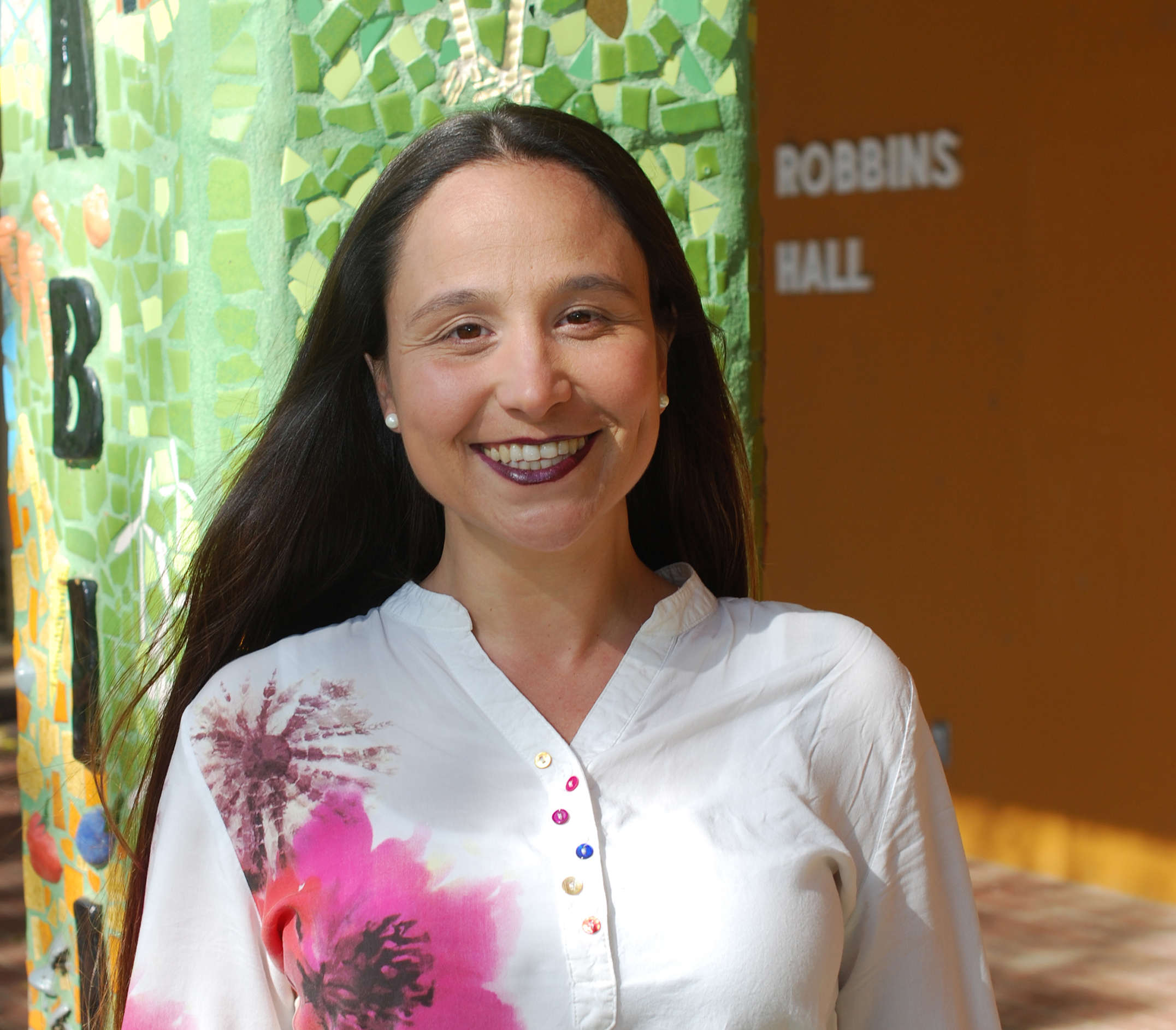Plant pathology researcher María Florencia Ercoli named to 2019 class of Pew Latin American Fellows
Postdoctoral scholar María Florencia Ercoli, a researcher in the laboratory of plant pathology professor Pamela Ronald, has been named to the 2019 class of Pew Latin American Fellows in Biomedical Sciences. Her research focuses on the strategies infectious bacteria use to invade plant hosts.

Through this fellowship program, Pew is providing support for a small cadre of young scientists from Latin America for postdoctoral training in the United States, giving them an opportunity to further their scientific knowledge under the mentorship of prominent scientists and to promote scholarly exchange.
“I am delighted that Dr. Ercoli has received this well-deserved honor,” Ronald said. “Her expertise in plant developmental research, together with her extensive knowledge of cell biology and microscopy, will advance our understanding of infectious diseases and coevolution between hosts and microbes.”
Plant pathogens employ a powerful strategy known as molecular mimicry to manipulate host cellular processes and facilitate infection. Ronald’s lab studies a bacterial pathogen that produces a peptide mimicking the activity of a plant peptide hormone. The presence of this peptide facilitates microbial infection. The goal of Ercoli’s research project is to understand how this molecular mimicry contributes to infection.
“I am grateful to the Pew Charitable Trusts for supporting me in my continuing work on plant biology in Professor Ronald’s laboratory,” Ercoli said. “Furthering knowledge of the role of bacterial molecules facilitating infection will add to our understanding of complex plant pathogen interactions.”
Ercoli is among 10 postdoctoral fellows from Argentina, Brazil, Chile, Colombia, Ecuador and Mexico who will receive two years of funding to conduct research through the Pew Latin American Fellows Program in the Biomedical Sciences.
“Scientific exploration and discovery should be a global pursuit,” said Rebecca W. Rimel, Pew’s president and CEO. “Pew is pleased to support these exceptional fellows from Latin America who are dedicated to advancing biomedical research and expanding scientific expertise in their home countries.”
The Ronald Lab is renowned for its research on genes that control disease resistance and tolerance to environmental stress in rice. She and her colleagues were recipients of the USDA 2008 National Research Discovery Award for work on flood tolerant rice.